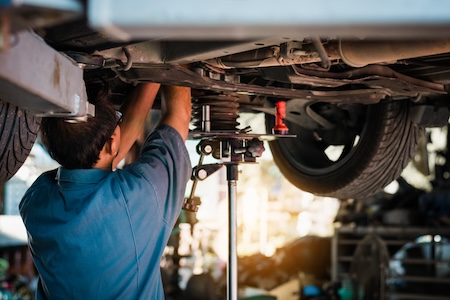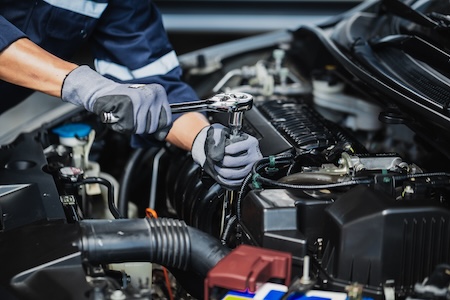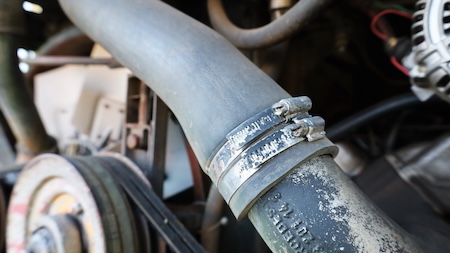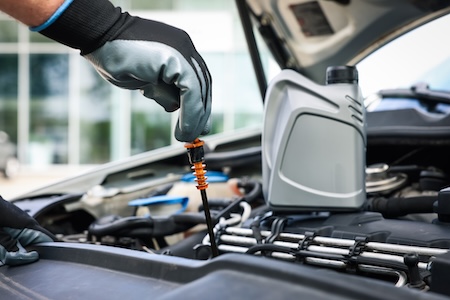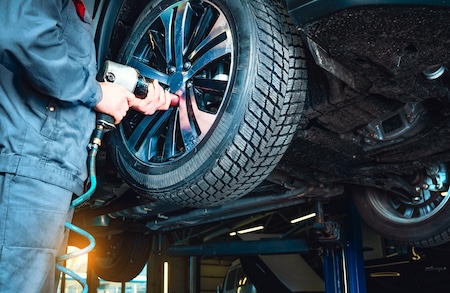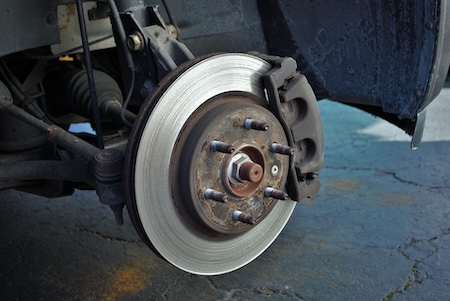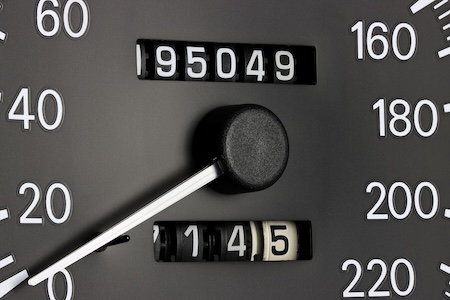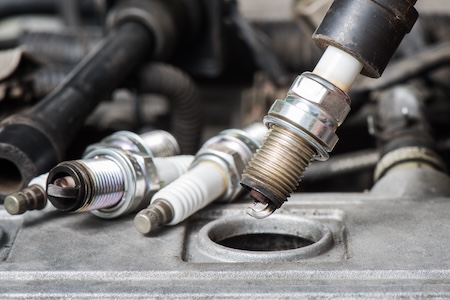If you live and drive in Colorado, you already know your car takes a beating. From the pothole-filled streets of Denver to the winding mountain passes of I-70, your tires are constantly challenged by rough conditions.
So it begs the question: How can you get the most mileage out of your tires in Colorado?
Tires are a big investment. And the better you care for them, the longer they’ll last. Which also means the safer you’ll be.
Let’s look at the most effective ways to extend tire life in Colorado’s demanding driving environment.
Why Colorado Driving Is Extra Hard on Tires
You’ve chosen to live in Denver for a reason. Maybe it’s the never-ending days of sunshine. Or the ability to partake in any sport you choose. Yes, you can live any lifestyle you choose here. Jump in your car, and you can be anywhere, fast.
But before you go, spend some time thinking about all your car goes through. Especially your tires. Maintenance is important here; it helps to understand what makes tire wear happen faster in Colorado:
Mountain Driving
Frequent elevation changes and steep grades create more friction, which wears tires quicker, especially during downhill braking or tight cornering.
Winter Weather
Snow, ice, and freezing temps can cause tires to lose pressure faster and become brittle, especially if you’re switching between summer and winter tires.
Summer Heat
High-altitude sunshine can heat the roads and cause overinflated tires to expand, leading to uneven wear.
Road Treatments
Mag-chloride and salt used on winter roads can corrode wheels and rubber compounds over time.
Urban Driving
In places like Denver, stop-and-go traffic, rough roads, and curb rash from tight parking situations all contribute to premature tire wear.
Translation: If you drive in Colorado, your tires need more attention than the national average.
Maintain Proper Tire Pressure Year-Round
Tires come with a tire inflation number printed on the sidewall. It seems easy; match that number and you’re good to go. It’s not that easy. The right tire pressure depends on every aspect of the drive, including temperature, altitude, and load weight. Always remember tire pressure is your first line of defense against uneven wear.
- Check pressure at least once a month, especially during seasonal transitions (when temperatures fluctuate 30°F+ in a day).
- Use your vehicle’s recommended PSI—not the maximum PSI on the tire itself.
- Don’t forget the spare tire! If you need it, you’ll want it to be properly inflated.
Colorado Tip: In cold weather, tires lose 1–2 PSI for every 10°F drop in temperature. A Denver cold snap can leave you dangerously underinflated overnight.
Rotate Tires Regularly
Tire rotation keeps wear even across all four tires, especially important in front-wheel or all-wheel drive vehicles, where some tires bear more load.
- Rotate every 5,000–7,000 miles, or at every oil change.
- Use the correct rotation pattern based on your drivetrain.
Colorado Tip: If you frequently drive in the mountains or use snow tires in winter, rotate before and after the season change to balance out the stress of cold-weather traction.
Get a Wheel Alignment Check (Especially in Denver)
If your tires aren’t aligned properly, they’ll wear unevenly—fast.
- Get your alignment checked once a year, or whenever you hit a major pothole (we’ve all been there).
- Signs of misalignment: pulling to one side, crooked steering wheel, or uneven tire wear.
Colorado Tip: Denver’s spring thaw is notorious for exposing new potholes. After winter ends, it’s a smart time to book a post-season alignment check.
Keep Your Tires Balanced
Tire balancing isn’t the same as alignment. Balancing ensures the tire and wheel weight are evenly distributed to avoid vibration and cupping.
- Rebalance your tires every 12,000 miles or whenever new tires are installed.
- Pay attention to vibrations in the steering wheel or floorboard. These are early clues.
Colorado Tip: If you often drive on gravel roads or through canyons, frequent rebalancing may be necessary due to uneven road surfaces.
Choose the Right Tires for the Season
Your tire choice matters in Colorado more than in most states.
- All-season tires are fine for urban Denver drivers who don’t venture far in winter.
- Winter tires (or snow-rated all-terrains) are best for mountain driving and ski trips.
- Summer performance tires work great in warm, dry months, but lose grip in cold temps.
Colorado Tip: For compliance with Traction Laws, especially on I-70 in winter, make sure your tires are either snow-rated or use chains when required. Failing to do so can lead to accidents or tickets.
Inspect Tire Tread Depth and Sidewalls
Worn tread is a safety risk. Ever heard of the “penny test”? It’s a way to check tread wear indicators.
- Replace tires when tread depth is below 2/32” (but aim for 4/32” or higher for wet roads).
- Look for cracking, bulges, or cuts on the sidewall. These could indicate an imminent blowout.
Colorado Tip: Wet spring roads and early snow in fall require extra tread to grip. Don’t wait for a bald tire to let go on a rainy mountain curve.
Drive Smarter, Not Harder
Aggressive driving chews up tires. Fast acceleration, hard braking, and sharp turns all create more friction, and more wear.
Instead:
- Drive smoothly and give yourself room to stop.
- Avoid potholes, road debris, and scraping curbs.
- Don’t overload your vehicle. Excess weight shortens tire life.
Colorado Tip: Take it easy on mountain descents. Downshift to control speed instead of riding the brakes, which reduces both brake and tire wear.
Store Seasonal Tires Correctly
If you switch between winter and summer tires, store them properly:
- Clean them first.
- Store in a cool, dry place, ideally in airtight bags or tire totes.
- Keep them out of direct sunlight or heat sources.
Colorado Tip: Check for damage frequently. Yes, they can show signs of irregular wear quickly, even in storage. Regular inspections can help guarantee your tires stay in good condition.
A Little Tire Care Goes a Long Way
Getting the most mileage out of your tires in Colorado comes down to consistent care and climate-specific strategy. With extreme weather, road chemicals, altitude, and seasonal transitions, your tires take on more than you might think.
But with regular pressure checks, timely rotations, smart seasonal choices, and routine inspections, you can maximize the life of your tires and your vehicle’s safety.
Ready for a tire check?
Stop by today. Our long-term staff knows exactly how Colorado roads affect your ride, and we’ll make sure your tires are up to the task.


